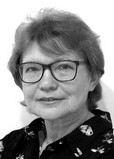Transformation of personal motives during sports tourism practices
Фотографии:
ˑ:
PhD, Associate Professor L.N. Rogaleva1
PhD, Associate Professor S.M. Galysheva1
PhD, Associate Professor A.V. Shikhov1
1Ural Federal University named after First President of Russia B.N. Yeltsin, Yekaterinburg
Objective of the study was to compare athletes' personal motives and self-rating of motivational state depending on the level of development of their sports mastery.
Methods and structure of the study. Sampled for the study were 30 people - participants of the 1st stage of the Russian Sports Tourism Cup - indoor walking distances (November 2018, Perm region). The first group was made of the athletes covering the walking track of the 3rd level of difficulty (13 people), the second group included those covering the walking track of the 5th level of difficulty (17 people).
The following methods were applied during the study: a questionnaire survey aimed to identify the reasons for choosing a particular sport, assess its popularity, material conditions for participating in the chosen sport; a modified standardized questionnaire for assessing personal motives for sports activities, which includes 31 statements developed by Dieter Tepel and Reinhild Kemper, scientists of the institutes of psychology of sport and physical activity in Cologne, Germany, "Scale of motivational state" developed by V.F. Sopov aimed to assess the situational motivation of athletes.
Study results and conclusions. The study found that the dominant personal motives for sports tourism practices are the desire to develop own physical abilities and expand the circle of contacts. At the same time, as the skill level increases, the significance of motives for self-realization and achievement of a personal goal by overcoming sports-related difficulties increases. With the increase in the level of sports mastery, athletes' self-rating of "motivational state" changes, becoming more adequate and associated with a positive assessment of the training process, confidence in the chosen training method and hope for success.
Keywords: sports tourism, personal motivation, self-rating of "motivation state", athletes.
References
- Baykovskiy Yu.V. Teoriya i metodika trenirovki v gornykh vidakh sporta [Theory and methodology of training in mountain sports]. Moscow: TVT Divizion publ., 2015. 304 p.
- Ilyin E.P. Psikhologiya motivatsionnyih razlichiy [Psychology of motivational differences]. St. Petersburg: Piter publ., 2006. 508 p.
- Ilyin E.P. Motivatsiya i motivy [Motivation and motives]. St. Petersburg: Piter publ., 2006. 512 p.
- Konstantinov Yu.S. Teoriya i praktika sportivno-ozdorovitelnogo turizma [Theory and practice of sports and recreation tourism]. Study guide. MOSCOW: Sovetskiy sport publ., 2009. 392 p.
- Malkin V.R., Rogaleva L.N. Sport-eto psikhologiya [Sport is psychology]. MOSCOW: Sport publ.. 174 p.
- Mnatsakanyan B.Kh. Faktory demotivatsii v sportivnoy deyatelnosti [Demotivation factors in sports activities]. Molodyie uchenyie. 2012. v. 2. pp. 76–77.
- Sopov V.F. Metody izmereniya psikhicheskikh sostoyaniy v sportivnoy deyatelnosti [Mental state evaluation methods in sports activities]. RSUPE publ., 2005. 32 p.
- Sopov V.F., Leontyeva A.B. Osobennosti sorevnovatelnoy trevogi i motivatsionnogo sostoyaniya konkobezhtsev i short-trekovikov v sorevnovaniyah vysokoy znachimosti [Features of competitive anxiety and motivational state of skaters and short trackers in major competitions]. Sportivny psikholog. 2013. No. 2 (29). pp. 78-82.
- Weinberg R.S., Gould D. Osnovy fizicheskoy kultury i sporta [Fundamentals of physical education and sports]. Kiev: Olimpiyskaya literature publ., 2001. 336 p.
- Shirinyan A.A., Ivanov A.V. Sovremennaya podgotovka sportsmena – orientirovshchika [Modern training of orienteering athlete]. Teaching aid. MOSCOW: Sovetskiy sport publ., 2010. 112 p.
- Deci E.L., Ryan A£ Self-Determination Theory: A Macrotheory of Human Motivation, Development, and Health. Canadian Psychology.2008.Vol.49. no.3.pp. 18 – 185.
- Dieter Teipel, Reinhild Kemper. Specific Motivational Aspects in Female Soccer Referees. 12 European Congress of Sport Psychology. Halkidiki, Greece, Book of abstract. 2007. P. 362. Harwood C., Spray C.M., Keegal R. Achievement goal theories in sport. Advances in sport psychology. Human Kinetics, 2008. No. 3, pp. 157-185.
- Malkin V.R., Rogaleva L.N., Kim A.M., Valeev R.R., Bredikhina Y.A. Sport psychology research and development projects at Ural Federal University. Theory and Practice of Physical Culture. 2018. No. 1. pp. 2– 4.
- Poczwardowski A., Siekanska M., Blecharz V. The role of self-regulation in sport: a conceptual review. Abstract book, 15th European Congress of Sport & Exercise Psychology 15-20 July 2019, FEPSAC, Munster, Germany. P. 125.



 Журнал "THEORY AND PRACTICE
Журнал "THEORY AND PRACTICE